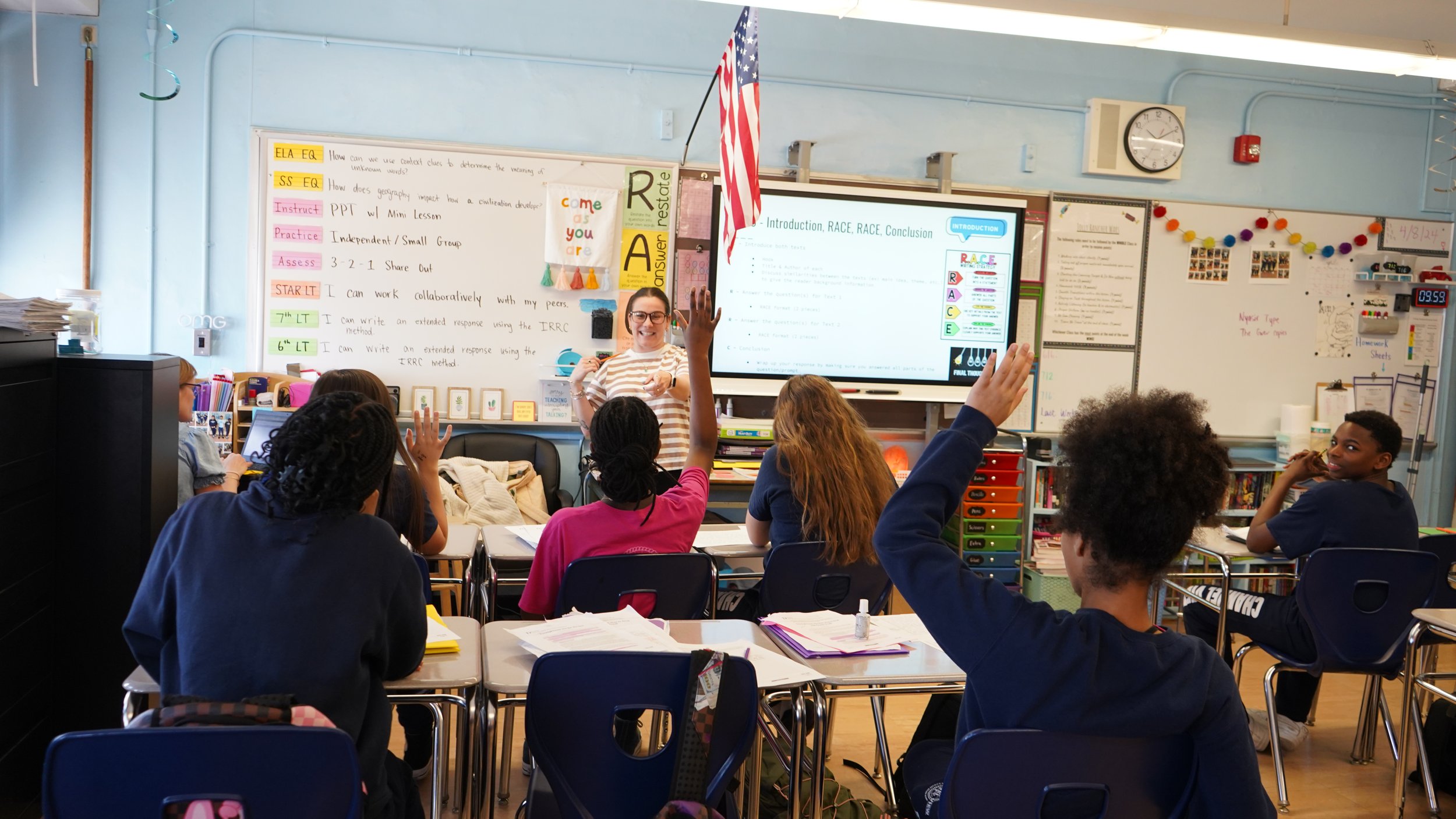
History and Social Studies
The Social Studies department is dedicated to incorporating the Common Core Standards into our teaching methods. We believe in providing an interdisciplinary educational experience, engaging students in comprehensive projects that encompass multiple aspects of learning. Our approach includes studying history through literature and art, alongside traditional classroom instruction.
Our curriculum emphasizes key ideas for each grade, which serve as central themes to guide teaching and learning. These key ideas represent the vital and enduring knowledge that students should focus on at each grade level.
Additionally, our department employs six specific practices in social studies:
Gathering, using, and interpreting evidence.
Employing chronological reasoning and understanding causation.
Making comparisons and contextualizing information.
Applying geographic reasoning.
Understanding economics and economic systems.
Engaging in civic participation.
These practices are integral to our teaching strategy and aim to equip students with a comprehensive understanding of social studies.
-
• First Civilizations (ca. 10,000 B.C.E. – ca. 900 C.E.)
• Expanding Interregional Networks: Exchange and Encounter (ca. 500 – ca. 1500 C.E.)
• The Ottoman and the Ming Dynasties (pre-1600 C.E.)
• Transformation of Western Europe and Russia (1314 – ca. 1750 C.E.)
• Africa and the Americas (pre-1600 C.E.)
• Interactions and Disruptions During the First Global Age (ca. 1400 – ca. 1750 C.E.)
-
• The World in 1750 C.E.
• An Age of Revolution and Empire (1750 – 1914 C.E.)
• Unresolved Global Conflict (1914 – 1991 C.E.)
• Decolonization and Nationalism
• Tensions Between Traditional Cultures and Modernization
• Globalization and the Changing Environment
• Students are expected to take the Global History & Geography Regents upon completion of this course this year
-
• Same components as Global History and Geography 2 plus;
• Technological and Environmental Transformations (to c. 600 BCE)
• Organization and Reorganization of Human Societies (c. 600 BCE to c. 600 CE)
• Regional and Transregional Interactions (c. 600 CE to c. 1450)
• Global Interactions (c. 1450 to c. 1750)
• Industrialization and Global Integration (c. 1750 to c. 1900)
• Accelerating Global Change and Realignments (c. 1900 to the Present)
• Students are expected to take the AP World History exam in addition to the Global History & Geography Regents and upon completion of this course this year
-
• Forming a Union: Colonial and Constitutional Foundations (1607 – ca. 1800)
• Expansion, Nationalism, and Sectionalism (1800 – 1865)
• Post-Civil War America Industrialization, Urbanization and the Progressive Movement (1865 – ca. 1900)
• Prosperity and Depression: At Home and Abroad (ca. 1890 – 1941)
• World War II and the Cold War (1935 – 1990)
• Social and Economic Change: Domestic Issues (1945 – present)
• The United States and Globalization (1990 – present)
• Students are expected to take the US History Regents upon completion of this course
-
• Same components as Social Studies 3 plus;
• Exposes students to college-level rigor
• Provides opportunity to become skilled readers of primary source documents written in a variety of periods and rhetorical contexts.
• Students are expected to take the Advanced Placement examination as well as the US History Regents upon completion of this course
-
• Foundations of American Democracy
• Rights and Responsibilities
• Civic Participation and Public Policy
-
• Personal Finance: Individual Responsibility and the Economy
• Individuals and Businesses in the Market
• American Capitalism and the Global Economy
-
• Same components as Social Studies 4
• Exposure to college level rigor and accountability
• Critical writing experiences and analysis of political and government documents
• Students are expected to take the Advanced Placement examination upon completion of this course

